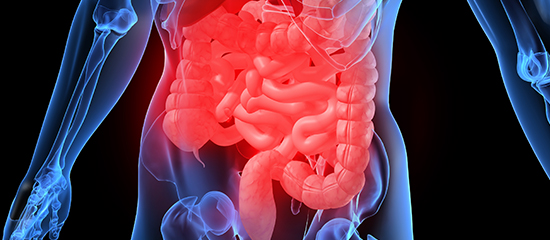cancer clinic
Cancer Immunity Clinic

01
Causes
Recent high-fat and meat diet, and processed and instant foods contain few fiber which is necessary for large intestine to form what's left of the food into stool and make it smooth by keeping proper hydration. This may cause large intestine to be exposed to the carcinogen for long.
Also, about 5~15% of colon cancer patients are effected by genetic factors. It was found that if someone has more than three colon cancer patients in two generations of his/her lineal family members, he/she is 2~4 times more likely to develop colon cancer.
Koreans' onset age is about 10 years earlier than the West and most cases go through the progression of normal mucosa, polyposis coli, and colon cancer. It takes about 10~15 years to develop into colon cancer.
02
Early checkup
Colon cancer usually comes with age. Therefore, according to the colorectal cancer early checkup recommendation, undergoing colonoscopy is recommended from the age of 50 even though there is no symptoms.
case polyps etc. are detected and removed, undergoing colonoscopy once a year is recommended. And if there is a colon cancer patient in family members, colon checkup is recommended from age of 40.
Of course, if there is any changes in bowel habit, such as constipation, diarrhea, etc., and if there are symptoms of bloody excrement, anemia without reason, abdominal mass palpation, weight loss, etc., medical examination by a medical specialist must be needed.
03
Prevention
Colon cancer can be prevented by having balanced diet containing more vegetables and by removing polyps.
Also, the risk group with high incidence of colon cancer should try to prevent or early detect cancer through regular checkups and proper measures.
04
Symptoms
Colon cancer may accompany with various symptoms, but there is no distinguishing ones. In many cases, colon ccncer is diagnosed through different examinations even though there is no symptom.
However, when constipation or diarrhea continues quite a while unlike usual bowel habit, when there is frequent abdominal pain, narrowing of the stool, blood on or in the stool, and when there is a feeling that your bowel doesn't empty completely, colon cancer may be suspected if the age is over 40. When suspected symptoms appear, please see a doctor and give your medical history as well as family history, then undergo the examinations mentioned below.
Both anticancertherapy and radiotherapy can be used alone or in combination, and either can destroy cancer cells effectively. However, both therapies may destroy normal tissues and cause several side effects. For these reasons, anticancer therapy or radiotherapy normally accompanies side effects including feeling of fatigue, nausea, decrease of hemocyte number, hair loss. Also, proper nutrition is necessary for the colon cancer patients.
05
Diagnostic Tests
| Type of Cancer | Examination Method | Advantages of Examinination | Disadvantages of Examination |
|---|---|---|---|
| Colon cancer | CEA(Carcinoembryonic antigen) test | It is simple blood test, which is used to check recurrent status. | Reliability is low. Rates of false positive and false negative are high. |
| Colonography | It is favorable for checking the overall shape of large intestine or lesion. It is helpful for planning surgery. | Biopsy is impossible. | |
| Colonoscopy | Precise diagnosis is possible. Biopsy is possible. | It is very painful for patients and hard for the operators. There may be risks of perforation. |
|
| Endoscopic ultrasound | The tumors beneath submucous layer which cannot be seen by Colonoscopy can be detected. | As endoscopic ultrasound device distribution rate is low and the operators are rare, it is difficult to get this test. |
Examination Guidelines for Early Detection of Colon Cancer (Recommendation of the Korean Sociery of Coloproctology)
Even not in the particular high risk group, it is recommended to take one of the following examinations; occult blood in feces(to find out if there is blood in the stool), digital-rectal examination(DRE), colonoscopy, colonography when the age in 40s. If colon cancer is not detected from those examinations, in order to detect colon cancer early, it is effective for early detection of colon cancer to undergo the examination once in 5 years. For those in high risk group, the Korean Society of Coloproctology recommends examination guidelines as below.
| Hormones | Functions | Related Diseases | ||
|---|---|---|---|---|
| When excessive | When deficient | |||
| Anterior pituitary | Family history of pubertastarda | Corticotropin | Cushing syndrome | Adrenal gland hypofunction |
| Gonadotropin | Ovarian stimulationOvulation | Hypo-ovarianism, Hypo-orchidia | ||
| Somatotropin | Growth stimulation | Ovarian stimulation Ovulation | Gigantism, Hyperpituitarism | |
| Melanotropin | Skin pigment increase | |||
| Prolactin | Skin pigment increase | |||
| Thyrotropin | Thyroid stimulation | Hyperthyroidism | Hypothyroidism | |
| Posterior pituitary | Antidiuretic hormone | Reabsorption of water | ||
| Oxytocin | Uterine contraction | Contraction stimulation | ||



